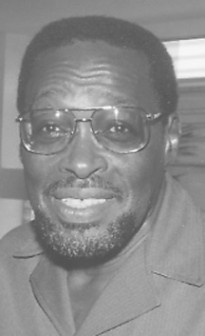Opposition coalition APNU has concerns about the absence of protocols on media access and campaigning financing in the Code of Conduct proposed by the Guyana Elections Commis-sion (Gecom) for parties contesting the upcoming polls.
“The code of conduct says nothing about access to the media and equitable access to the media. Another thing that the code of conduct doesn’t address is the whole business of campaign financing and the sources of funds for the campaign. These are two of the many concerns that I know the APNU are actually looking at and are taking into account,” APNU Policy and Manifesto Committee member Dr Maurice Odle told a news conference yesterday, even as the ruling party indicated its intention to sign on to the code.
Gecom last week circulated the draft code for perusal and comment to 17 parties comprising those currently represented in parliament, and others which have indicated interest to contest the upcoming elections.

Lance Carberry, also an APNU Policy and Manifesto Committee member, noted that the APNU was still examining the draft and would notify Gecom of its concerns, in order to ensure it signs on to a code it is satisfied with.
Stabroek News was informed that while the draft code does not address campaign financing, it does seek to get parties to commit “to adhere to strict standards of financial probity, accountability and transparency.”
Equitable state media access and campaign financing safeguards to prevent abuse of state resources by the incumbent have been concerns of the opposition at past elections. At the last election, the Commonwealth Secreta-riat observers noted that there was clear evidence that the PPP/C before and during the campaign maximised its control of the state-owned broadcast media to get its messages across to the public and project a highly favourable image to the electorate. In particular, the independent Media Moni-toring Unit cited Government Information Agency (GINA) programmes for being clearly political and intended to advance the cause of the ruling party, thereby giving the incumbent an unfair advantage over other political parties. Additionally, opposition parties also accused the PPP/C of using Cabinet outreaches to remote areas close to promote its campaign using state resources.
PPP campaign spokesman Robert Persaud told a press conference at Freedom House yesterday that his party has studied the draft code and has indicated its intention of signing on. He noted that the code would political parties to conduct their campaigns in the highest standards.
As regards the party’s expectations of its campaign, Persaud said that a civil campaign would focus on issues of importance and the country’s development. He added that while there would be a joke or banter that would spice things up, “I believe that the conduct must not contribute to hurting people’s feelings or having groups in society feeling agitated.” He said too, “I think we have matured as a democracy since 1992. In 2006, we saw an enhanced level of political maturity. We have given all assurances and will take seriously the code of conduct.”
Meanwhile, AFC elections spokesman David Patterson said that his party was still examining the draft and could not pronounce on it.
Gecom had previously developed a code for political parties in 2001, which observer missions noted was “more honoured in the breach than the observance.” At the last elections, the Inter-Religious Organisation (IRO) developed a Peace Pact and Code of Conduct that was signed by all parties with the exception of the PNCR-1G.
Gecom has said it is moving towards getting all of the political parties which would contest the polls to sign the code of conduct and to generally abide by the protocols.
Gecom looks forward to all of the contesting parties signing the code as a demonstration of their willingness to implement their respective election campaign strategies in ways that contributes to the maintenance of peace and tranquility throughout and beyond the elections,” it said in a statement on Sunday.
“Considering the advantage of having such an agreement in place, especially with respect to guarding against confrontational and vitriolic election campaign meetings/ rallies/statements, Gecom is optimistic that the contesting political parties would acquiesce to the code by way of signature,” it added.





